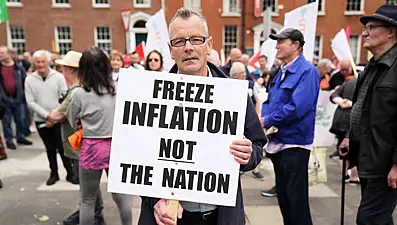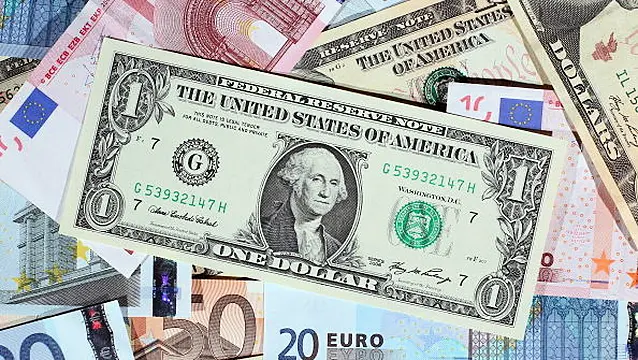The euro sank to its weakest since late 2002 versus the dollar on Tuesday, as a jump in natural gas prices reignited worries about the euro zone economy and data showed business growth in the region slowed sharply in June.
After the US markets were closed for a holiday on Monday, Tuesday was proving to be a much more volatile session, with stocks reversing early gains and euro zone bond yields falling as investors sought out safety in government debt.
News that Norwegian offshore workers began a strike on Tuesday that will reduce oil and gas output has added to fears about a European energy shortage.
The euro dropped by as much as 1.3 per cent against the dollar to $1.0281, its weakest since December 2002. Versus the Swiss franc, it dropped 0.9 per cent to 0.9925 francs, its lowest since 2015.
The dollar index shot up 1.1 per cent to 106.26, a two-decade high for a currency that investors rush to buy during times of acute economic uncertainty.
Economists said the risks of Europe backsliding into a recession were clearly growing after another big 17 per cent jump in natural gas prices in both Europe and in Britain looked set to push inflation even higher.
Concerns about how the European Central Bank will react were also gnawing at sentiment after German Bundesbank chief Joachim Nagel had hit out at the ECB's plans to try and shield highly indebted countries from sharp rises in borrowing rates.
Survey data on Tuesday showed business growth across the euro zone slowed further last month and forward-looking indicators suggested the region could slip into decline this quarter as the cost of living crisis keeps consumers wary.
US-China trade

Elsewhere, stock markets gave up early gains as the surge in natural gas prices weakened sentiment, offsetting earlier optimism about signs of easing US-China trade tensions.
Offering brief respite to nervous markets earlier was a report that US president Joe Biden was leaning towards a decision on easing tariffs on goods from China.
A survey showing China's services activity grew at the fastest pace in almost a year also helped the mood during Asian hours.
Tuesday offers little in the way of important economic data, but later this week the US Federal Reserve and European Central Bank release their minutes from recent policy meetings and on Friday widely watched US payrolls data is published.







